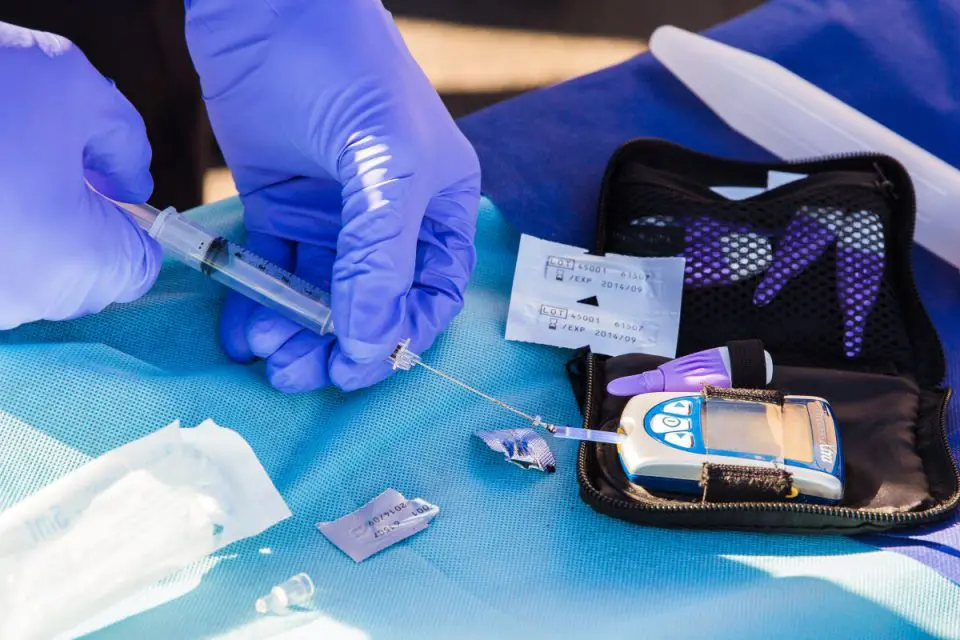By Nasuha Badrul Huzaini
DIABETES mellitus, or commonly known as diabetes, remains one of the major non-communicable diseases in Malaysia.
According to the National Health and Morbidity Survey (NHMS) 2019 conducted by the Health Ministry, the prevalence rate of diabetes in adults in Malaysia has increased significantly from 13.4 per cent in 2015 to 18.3 per cent in 2019.
As of 2019, an estimated 3.9 million adults in Malaysia aged 18 and above are diagnosed with diabetes, an alarming jump of 400,000 cases from 3.5 million adults in 2015. In short, the statistic shows that nearly one in five Malaysian adults is suffering from the disease.
On November 14, the world will be celebrating World Diabetes Day (WDD) which was created in 1991 by the International Diabetes Federation in response to growing concerns about the escalating health threat posed by the disease.
WDD is the world’s largest diabetes awareness campaign, reaching a global audience of over one billion people in more than 160 countries. The campaign draws attention to issues of paramount importance to the diabetes world and keeps diabetes firmly in the public and political spotlight.
For this year, the theme chosen for the special day is ‘Access to Diabetes Care — If Not Now, When?’ and Selangor Journal has reached out to two professionals to share their insights on diabetes.
Hospital Kasih Cyberjaya occupational and general health specialist, Dr Hanafiah Bashirun, explained that diabetes is a chronic disease that occurs when the pancreas is no longer able to make insulin, or when the body cannot make good use of the insulin it produces.
“There are three main types of diabetes — type 1, type 2 and gestational. Type 1 diabetes can develop at any age, but occurs most frequently in children and adolescents. Meanwhile Type 2 diabetes is more common in adults and is often caused by unhealthy eating habits as well as inactive lifestyles.
“Gestational diabetes usually happens during pregnancy and is associated with complications to both mother and child,” he said in an interview, recently.
Citing reports from the International Diabetes Federation, Type 2 diabetes accounts for around 90 per cent of all diabetes cases worldwide.
To this, Dr Hanafiah opined that Malaysians are greatly exposed to the risk of Type 2 diabetes due to their unhealthy lifestyle.
“I noticed that most people do not understand how calorie intake works and why it is crucial to help us maintain a good and balanced diet.
“The first thing that we must work on is to familiarise ourselves with calorie intake, especially those who have family members diagnosed with the disease. Next, manage your sugar intake. There are a few options to replace white sugar such as stevia or corn starch which produce fewer calories. These are among the recommendations if we want to opt for a healthier diet,” he said.
Dr Hanafiah assures that a person can still lead a healthy and productive life after being diagnosed with diabetes, provided he or she strives to control the disease.
“Diabetes is a silent killer and may affect three major organs, namely the eyes, the heart and the kidneys should the patient fail to manage the disease from an early stage. However, it is not the end of the world. Contrary to popular misconception, diabetes patients do not need lifetime medication. In fact, the thought of being dependent on medicines may make it more difficult to treat the disease.
“The first thing that the patient must do to ensure that their sugar level is under control is by going on a diet, according to the advice from a certified dietitian. Secondly, they must practice a healthy lifestyle, go for walks and do some exercise within your capability, do not overdo it. If the sugar level is still not convincing despite making it a habit to exercise and cut the sugar intake, you may then proceed with medication after consulting with the doctor,” he said.
Meanwhile Universiti Malaya Medical Centre dietitian Mohd Khairul Azuan Din shared that there is no specific food that needs to be avoided to prevent diabetes.
“The key word here is moderation. The type of foods does not really matter, what is important is to ensure that the portions are moderate. The patient must be knowledgeable when choosing the right food.
“There are a few eating habits that can be adopted by the patient, including to determine the carbohydrate source in the food. Most of the diabetes patients are big in size, and our goal is to help them lose some weight.
“What we usually recommend to them is to eat frequently in small portions. They must also include some vegetables in all three main meals aside from two portions of fruits for their side meals.”
Khairul Azuan also opined that it is not necessary for the patient to omit rice and other types of carbohydrate foods from their diet, such as noodles, bread and anything starchy.
“They just need to eat in the portion allowed by the dietitian, for example, a fist-sized portion of cooked rice. And if they do not want to have rice, they can opt for a piece of bread which contains more or less similar calories to one portion of rice.
“Even better, they can choose other types of rice such as brown rice or basmati rice as the digestion period is slower, hence the process to release sugar into the bloodstream will be longer compared to normal rice,” he said.





